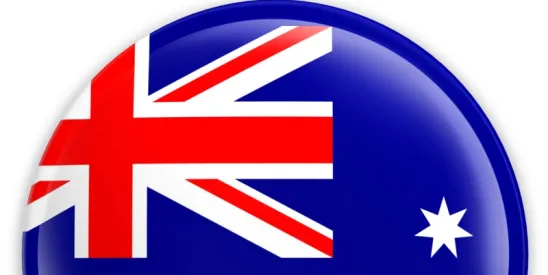The Coalition of Major Professional and Participation Sports Inc. (COMPPS) has made a submission to the Senate Inquiry into Foreign Bribery, calling for a federal legislative response to tackle the threat of local and cross-border match fixing in Australia.
As sports betting in legal and illegal markets continues to grow, and with an ever-rising incidence of match-fixing across sport globally, COMPPS warns of “the potential for the threat of match fixing to strike at the core of sport’s integrity and the perception of sport’s integrity in Australia”.
COMPPS is comprised of the governing bodies of major professional sports in Australia: the Australian Football League (AFL); Australian Rugby Union (ARU); Cricket Australia (CA); Football Federation Australia (FFA); National Rugby League (NRL); Netball Australia; and Tennis Australia.
Keeping Sport Clean: Australian Initiatives
In the Coalition’s submission, dated 8 September 2015, Malcolm Speed, Executive Director of COMPPS, and former International Cricket Council CEO, acknowledged the “serious and concerted” efforts undertaken to address the serious threat that match fixing poses.
In June 2011, federal, state and territory sports ministers endorsed a National Policy on Match-Fixing in Sport, under which governments agreed to pursue measures including nationally consistent legislative arrangements to tackle and deter match fixing, and information-sharing arrangements between governments, major sports organisations, betting operators and law enforcers.
In line with the Policy, the federal government has established the National Integrity of Sport Unit (NISU) to provide national oversight, monitoring and coordination in respect of the threats posed by doping, match fixing and other forms of corruption.
Measures have also been taken by sporting bodies themselves. Working in concert with betting operators and players’ associations, COMPPS initiated an Anti-Corruption Working Party in 2011 to make recommendations for reform and formulate robust codes of conduct for COMPSS members.
COMPPS’ Integrity Committee (CIC) continues to coordinate joint activities amongst the members. “A key element of the work … undertaken by CIC is with the objective of ensuring to the greatest extent possible, consistency amongst the sports in combatting match-fixing,” Mr Speed said.
Dropping the Ball?
It is consistency which is still sorely lacking in the Australian anti-match fixing legislative framework, COMPPS cautions.
The task of tackling match fixing has fallen to be dealt with by local police forces and patchwork state and territory legislation, leading to a general lack of harmonisation in legislative and enforcement approaches across Australia. The promotion of legislative uniformity has been met with varying levels of enthusiasm. To date, not all states have created match fixing offences, and the laws, where implemented, are not all consistent.
These laws have, in places, been put to use. In September 2013, reports emerged of a syndicate conducting multi-million dollar match fixing activities involving Victoria’s Premier League soccer division. Six people were subsequently charged under new Victorian criminal offences introduced pursuant to the National Policy, including the coach, four players (all from the United Kingdom) and a Malaysian national.
COMPPS’ submission presses for greater uniformity to prevent offenders avoiding prosecution by “forum shopping” in jurisdictions which have not adopted the Policy.
Tackling Cross-Border Match Fixing
COMPPS also has transnational corruption in its sights. It suggests that certain forms of cross-border match fixing might be captured and deterred by extending the federal legislative framework on foreign bribery to cover sporting officials. Against the backdrop of the on-going Fifa corruption inquiry, COMPSS submitted that the conduct of officials in international sporting bodies could also fall within the reach of Commonwealth legislative reforms.
Samantha Bricknell, Research Manager at the Australian Institute of Criminology, suggests that corruption in Australia “has been predominantly homegrown”, and the extent to which it will become “a transnational phenomenon remains to be discovered”. Law enforcement and sporting bodies warn, however, of the inevitable infiltration of international syndicates into Australian sport and Australian-hosted sporting events.
Tellingly, ahead of the 2015 Cricket World Cup, the International Cricket Council (ICC) lobbied the Australian and New Zealand host governments to strengthen anti-corruption legislation. With elite cricket rocked in recent years by a series of corruption scandals, the ICC has sought to ramp up monitoring and regulation efforts to stem the perceived rot.
The threat is not so confined, however. COMPPS stresses that match fixing is “sport neutral”, with risks to one sport easily translating into risks to others.
“The extent of time and resources invested in this area and the level of formal and informal cooperation between these stakeholders is indicative of the seriousness with which the threat is perceived and the significant damage that could ensue to all sport if the scourge of match fixing were to increasingly infiltrate Australian sport,” Mr Speed said. It remains, COMPPS suggests, for federal reforms to “increas[e] the armoury available” to address the problem.




 />i
/>i

